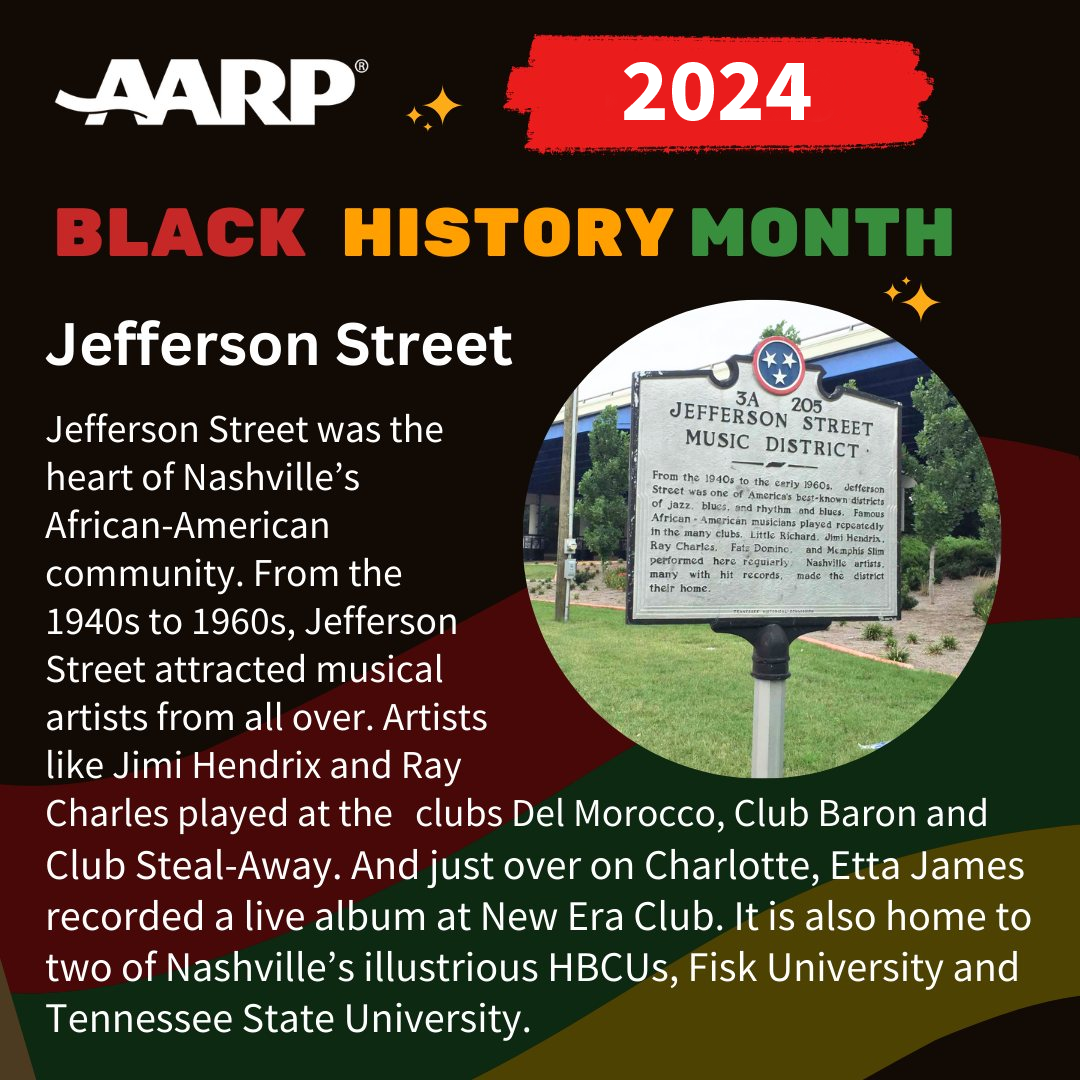AARP Hearing Center
Tennessee is often recognized as the Volunteer State, but there’s much more history there than meets the eye. Tennessee is the home of many impactful, change-making people, institutions, and more especially within the African American community.
Here are 7 connections between Tennessee History and Black History that you may not know:
1. Jefferson Street can be seen as hub of heritage and history as it houses not only two Historically Black Colleges and Universities (HBCUs), but it also attracted musical artists from all over including Jimi Hendrix, Ray Charles, and Etta James. Jefferson Street gave African American entrepreneurs the space and opportunity to build successful businesses.

2. The first institution of higher learning in Nashville, Tennessee was Fisk University. Fisk University is amongst the highly ranked Historically Black Colleges and Universities (HBCUs). It was built in 1866 and has been the cornerstone of excellence and education, producing leaders and scholars. The Fisk Jubilee Singers are an acapella ensemble that made history as the first collegiate music group to win a Grammy. Fisk’s rich history doesn’t stop there as it became the first HBCU to establish an NCAA gymnastics team.
3. Dr. Georgia E Lee Patton and Minnie Lou Crosthwaite made history as the first African American woman to graduate from Meharry Medical College and the first African American person to take and pass the teacher's exam respectively. Both women studied at Meharry Medical College, which resides nearby Fisk University and Jefferson Street.

4. In 1991, the Tennessee Tribune was founded by Rosetta Irvin Miller-Perry, making her the first African American female publisher in the state of Tennessee. Each week the Tennessee Tribune compiles stories that will make a positive impact on the Black community or that are often ignored by major media outlets. This newspaper is catered to keeping the heart of Tennessee’s Black community aware about local, regional, and national occurrences.
5. Inez Crutchfield was the first African American woman to serve as a Representative for Tennessee on the Democratic National Committee, and the first African American woman to serve as president of the Democratic Women’s Club of Davidson County. She was even inducted into the Tennessee Women’s Hall of Fame in 2013.
6. The US Civil Rights Trail, which stretches across 15 states, currently features seven historic locations in Memphis: National Civil Rights Museum, Clayborn Temple, Mason Temple Church of God in Christ, world famous Beale Street, WDIA Radio Station, I Am A Man Plaza, and Stax Museum of American Soul Music. The trail has landmarks that span across 15 states including Georgia, Alabama, and Mississippi.
7. Fawn Weaver, CEO of Uncle Nearest Premium Distillery, built the company with intentions of curating an American brand with a story detailed and supported enough to be traced back to its African American roots. Nearest Green, the inspiration and namesake, was a master distiller that taught Jack Daniels, but did not receive the credit and recognition he deserved. The legacy and honoring of Uncle Nearest continue to grow and expand through concepts like the Nearest Green Legacy Scholarship, which pays for his descendants to go to whichever university they choose.
New black-owned businesses in Tennessee are on the rise each day especially because of organizations like Corner to Corner and the Nashville Black Market. The work of African Americans in the Tennessee community is monumental, influential, and ever-growing. Celebrating Black History Month means celebrating excellence!































































